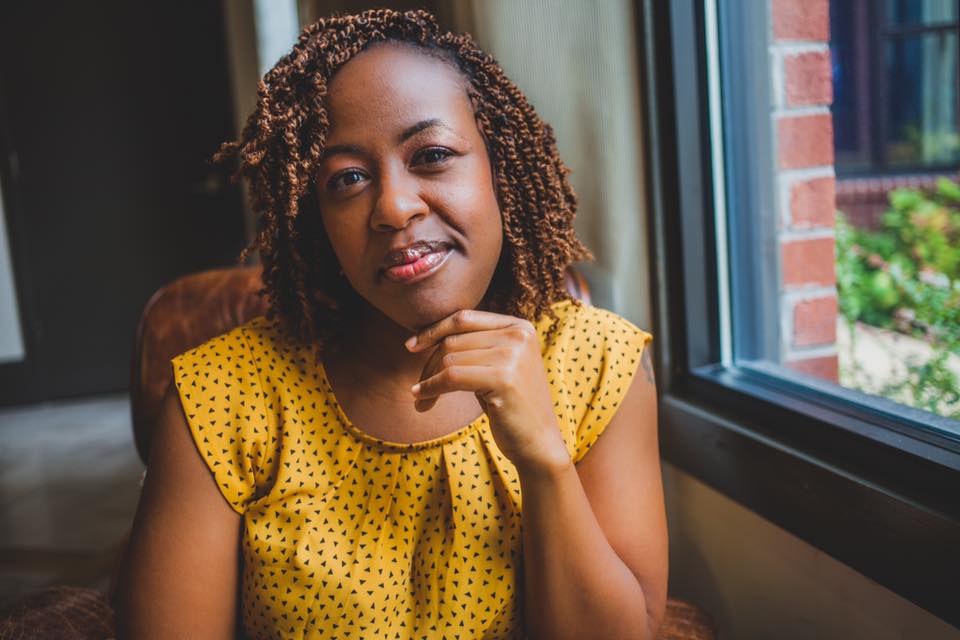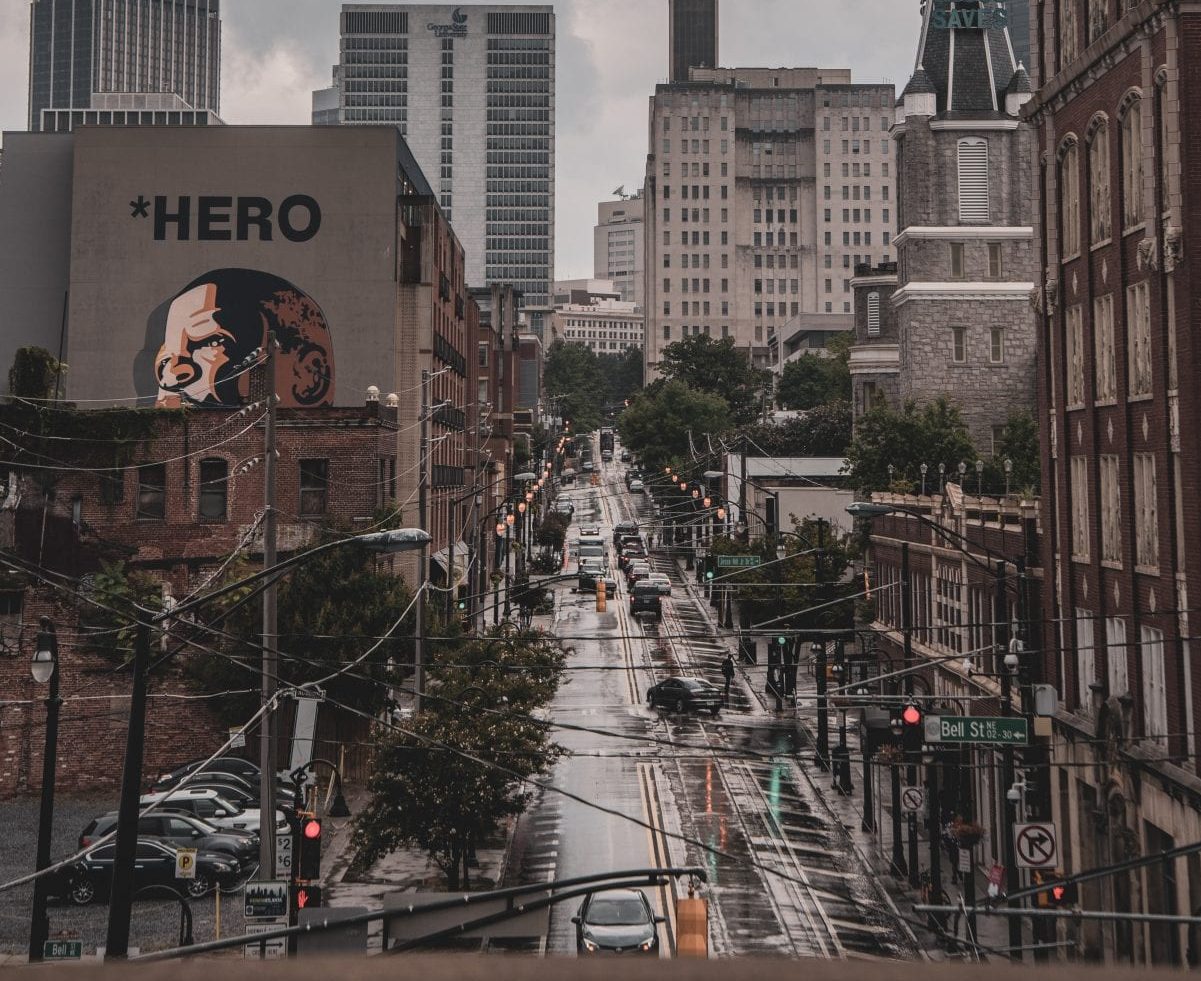I hear you. I see you. I feel you. I am you. I’m a Black mama to a Black daughter. My granny, aunties, sisters, cousins, and lovers are all Black people. I love Black people deeply and I’ve loved Atlanta since arriving here in 1994 as a teenager. I stand in solidarity with Black folks who unapologetically affirm that our lives matter and who say ‘ouch’ loudly when experiencing harm. Despite what you might have heard or been told, what happened in downtown Atlanta last night IS us because there’s no one way to be Black and no one way to respond to race-based terrorism. (And yes I know there were non-Black people downtown last night as well but I’m focused on us.) We are disruptors, peaceful protestors, artists, organizers, strategists, healers, lawyers, students, police officers, entrepreneurs, parents, elected leaders, elders, people who respond to violence with violence, and so much more. This is Atlanta.
Anti-Blackness wants us shaming each others’ expressions of humanity when it looks and sounds different than our own. I still catch myself doing that at times. I did it last night as I watched a terrified Black mama, who also happens to be the mayor of the South’s so-called “Black Mecca,” scold adult humans for expressing their rage and grief publicly. As a Black mama, I recognized the ancestral ache in her voice and in her body as a familiar one, one that I initially wanted to push down within myself by making her response wrong, just as she made the response of the protestors wrong. Her plea in that moment, for people to go home, seem to come partly because she knows that even with her power she can’t protect them from the terror that is America. In moments of exasperation and desperation, we Black mamas try almost anything in an attempt to keep our beloveds safe.
But, we are not the problem. We are not broken. We are not defective. We are not wrong. All of our feelings and expressions are valid and understandable.
Anti-Blackness wants us to believe that we’re not fully human, that we’re defective, that our feelings, reactions, our very existence is too much, that we can and should tolerate more pain than other humans. Our pain is taken out of historical and present-day context, viewed as the origin of violence instead of the result of violence. While trying to survive white supremacy and systemic racism, we’re asked to shush our pain and only offer it publicly in respectable ways.
These systems aren’t broken, they’re operating precisely as intended. They’re designed to demonize us, dehumanize us, exploit us, and kill us to preserve white people’s comfort, wealth, well-being, and embodied sense that they are the supreme standard of what it means to be human.
These truths are heavy and important to reckon with. Without deep and sustained truth-telling, we often spend our brilliant energy trying to fix and heal things that ain’t ours to fix and heal. Anti-Black racism is the bedrock of this traumatized country that began with the murder of Indigenous people and the burning and looting of their land, medicines, and so much more. Atlanta with all of its beautiful Black people is no exception. Atlanta as a “Black Mecca” is part legend; how could it not be when systemic racism is this country’s oldest, uncured virus. This powerful “Black Mecca” narrative gets weaponized against us when we step outside of the respectability that holds it in place and it blinds us to the ways that many Black Atlantans, especially young, poor, working-class, trans, and queer people, have never benefited from this narrative.
Part of why the continuous death of our family and community members at the hands of the empire is so painful is because we have a love for each other that runs deep. bell hooks, one of our Black-feminist aunties, teaches us that love is: care, commitment, responsibility, respect (*not respectability), knowledge, and trust. We have a responsibility to each other, a responsibility to see and hold sacred each other’s full humanity. To support each other’s wholeness and inherent divine right to be fully expressed.
When humans are in pain, especially persistent unrelenting pain and grief, they have a range of completely human reactions. Some of us fight, some of us freeze, some of us flee, some of us collapse, while others appease; many of us cycle between these responses. We are human and divine. We rage. We grieve. We heal individually and in community. We come together, wail, dance, light candles, cry, tell stories, rest, sing, cook, hum, play cards, braid hair, throw something on the grill, drink brown liquor, call on the ancestors, use healing herbs and plants, touch and hold each other. We are medicine. Sometimes we forget this truth.
Living and surviving during a public health crisis, where a disproportionate number of Black people are suffering and dying, has limited many of our communal practices which are essential all the time but especially in times like this. At a time when we need to be physically close to each other, for some of us, our offering of love looks like keeping a physical distance from each other. This is even harder to accept and practice while watching our people be murdered, threatened, and forgotten.
Even in times like these I still struggle to make space for the full humanity of other Black folks. But I imagine a “Black Mecca” as a city where this is possible. A city where we develop and practice different ways of being together, listening, challenging, and caring for each other while we each play our part in affirming and assuring Black liberation. What do you imagine a fully realized “Black Mecca” or “Wakanda” to be?
We need each other, y’all. We need ALL of us. We all have a role to play. Together we can figure out what is ours to fix and heal and what isn’t. We can reckon together, imagine together, and pivot our investments of time, energy, and money toward ways of being that reclaim the deep sacred wisdom of our ancestors. If any city on this land can do this, it’s Atlanta.
Love,
Mattice
Mattice Haynes
Co-founder & Curator, The Black mecca Project
Revised June 2, 2020
Note: None of what I’ve written here is new. Much of it is ancient and we are being guided to remembe and reclaim. I want to acknowledge some of those guides and teachers here, even while knowing I’ll likely unintentionally exclude someone. I’m deeply grateful for the teachings of wise ones who guide and influence my being, thinking, and action:
Hundreds of Atlanta’s Black neighborhood leaders, movement organizers, cultural workers, and healers who have welcomed me into community and allowed me to walk alongside them, especially Black womxn and nonbinary folks including my TBmP collective members
Black women elders and ancestors including Harriet Tubman, Fannie Lou Hamer, Ella Baker, Audre Lorde, Toni Morrison, Angela Davis, Assata Shakur, Toni Cade Bambara, Alice Walker, the Combahee River Collective and more
Alison Johnson, Executive Director, Housing Justice League
Monica Dennis, Co-Director at Move to End Violence
Aisha Shillingford, Intelligent Mischief



